DOTA: Dragon's Blood Ending Explained | Screen Rant
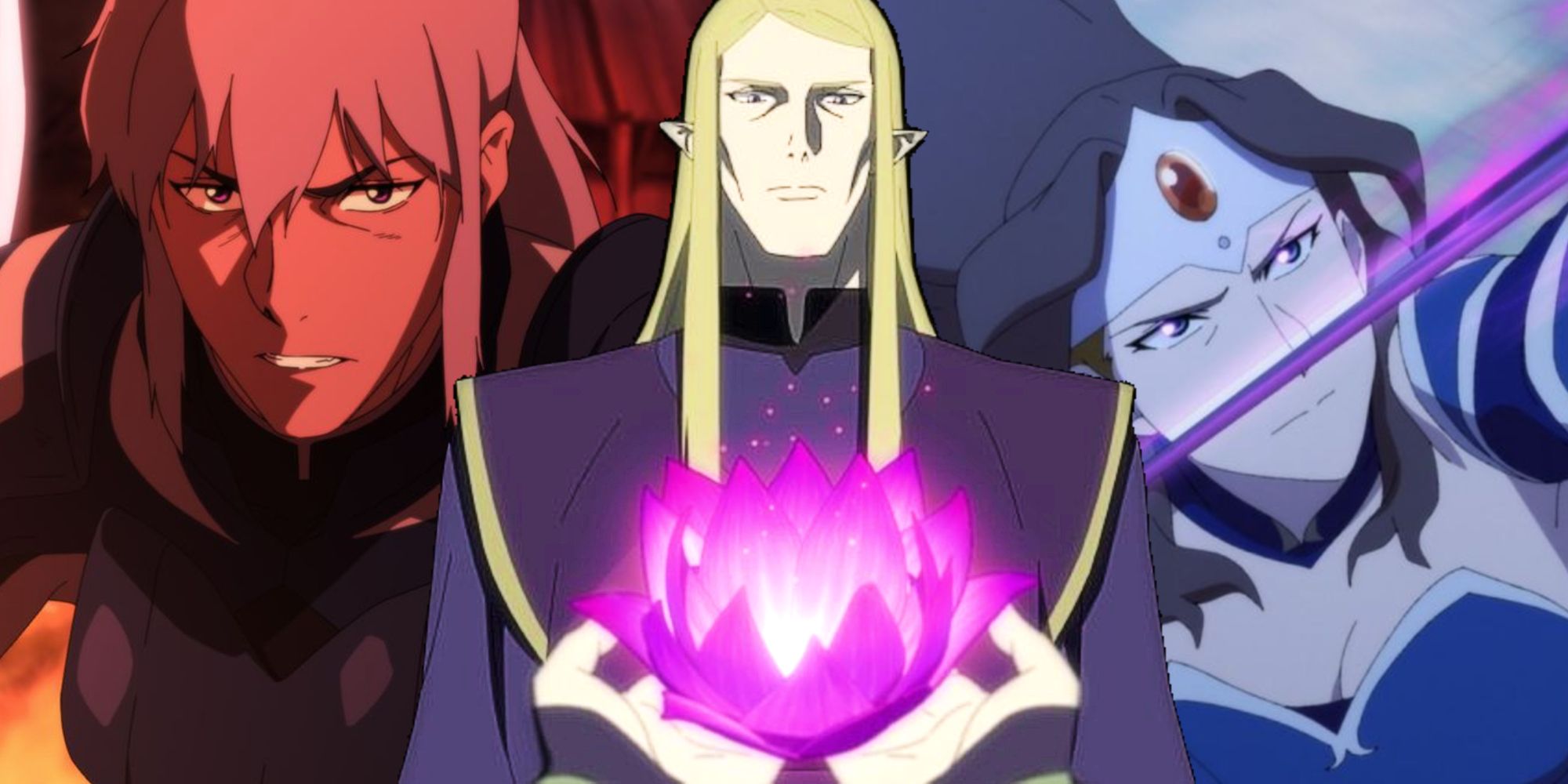
Warning: Spoilers Ahead for DOTA: Dragon’s Blood
Book 1 of DOTA: Dragon’s Blood ends on an enthralling note, with the formidable, grief-stricken mage Invoker hovering menacingly over a battered Goddess Selemene. Based on the in-game lore of DOTA 2, Netflix's DOTA: Dragon’s Blood focuses on Davion, a Dragon Knight who is currently inhabited by Slyrak, the ancient Ember Eldwurm, whose soul is coveted by the demon marauder Terrorblade. Davion’s tale unfolds over the course of eight episodes, and also features extensive backstories, interconnected character arcs, and constantly unraveling mysteries. DOTA: Dragon's Blood is now available for streaming on Netflix.
DOTA: Dragon’s Blood opens with the origins of the in-game lore, namely the existence of the Primordial Mind and its subsequent bifurcation into Radiant and Dire. This sets up the premise for the rise of Terrorblade, who succeeds in shattering the fractal prison walls of Foulfell and remaking the world in his own twisted image. Meanwhile, Princess Mirana and Marci are on a quest to retrieve Selemene’s stolen lotuses, wherein the act of stealing is rooted in faith as opposed to the usurpation of power.
By the end of Book 1 of the Netflix show, all primary characters reach critical junctures in their respective arcs, although it is difficult to speculate the repercussions that Invoker’s actions might bring about in terms of causality. Now with Selemene on the brink of defeat, the status quo of the show’s inner world seems to be shifting gradually, allowing new players to assume center stage in a potential Season 2. Here is a deep-dive into the ending of DOTA: Dragon’s Blood, and what it could potentially mean for every major character.
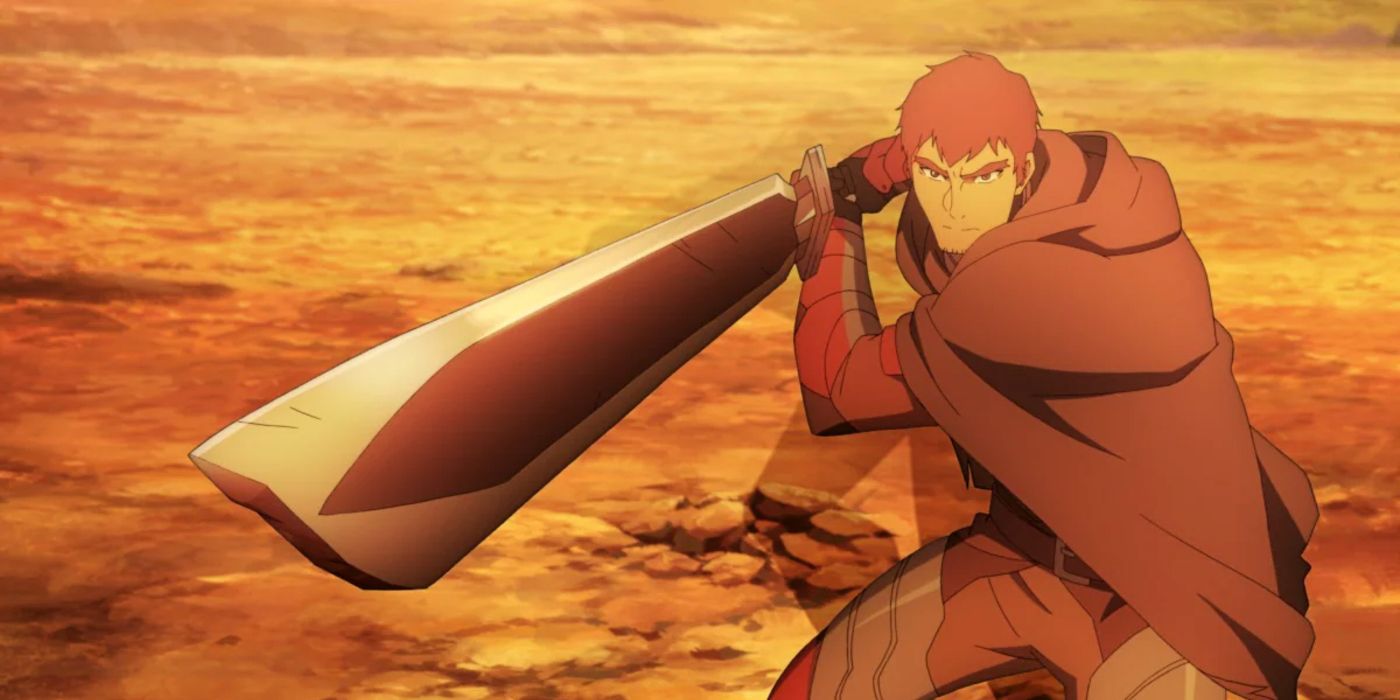
While the dual notions of identity and purpose drive most of the characters in the Netflix show, Davion finds himself in quite a predicament after Slyrak inhabits his body inside the cave. It is interesting to note that when Davion is first introduced as a skilled dragon knight, there seems to be no tussle in identity at the time, as he wholeheartedly believes in his lifelong quest to hunt and slay beasts. However, this changes when he ventures inside the cave to prevent the awakening of Uldorak, the Earth Eldwurm from slumber. When Terrorblade reveals himself to Davion, he brings up the knight’s traumatic childhood, wherein he had to witness his father being burnt alive, most possibly killed by a horde of dragons. Although Terrorblade attempts to transform Davion’s pain and hatred for dragons into a weapon for manipulation, the dragon knight is able to gauge the hellion’s nefarious intentions and act in the favor of the greater good.
This inherent nuance defines Davion’s character, especially after his transformation into Slyrak for the first time. The acute awareness of the fact that his soul is removed from that of the dragon is exemplified in the sequence wherein a ravenous Slyrak chases Mirana across the countryside while an increasingly-concerned Davion struggles to save her. Soon after, Invoker informs Davion of his inevitable death, along with the fact that the eight Eldwurms constitute the pillars of creation, serving as the key to remake reality in the usurper’s image. This is, of course, a reference to Terrorblade’s motivations, who wishes to plunge the world into primordial darkness and unleash hell on earth. When the lotuses are unleashed, and an eclipsed blood moon marks the beginning of the end, Davion transforms into Slyrak with the intention to protect Mirana, to whom he is loyal right from the start.
If one were to measure Davion’s arc against Joseph Campbell’s Hero’s Journey, it becomes clear that his worldview undergoes an alteration after the incident in the cave, and his relationship with Mirana. During his interactions with the Thunder of Dragons, Davion acknowledges the fact that while he slays beasts as a form of retribution for their murderous acts, Terrorblade’s ambitions pose a greater threat to the world, with his death being an inevitable outcome in the course of events. Ever-prepared to face death in order to protect those he loves, Davion imbues the traditional qualities of a fearless knight, who is swayed by the genuine prospect of the greater good as opposed to his own personal motivations. As Kaden and Bram are last seen taking his sedated body, will they be able to break Slyrak’s hold over his soul? What possible motivations does Slyrak himself hold, and how does Davion fit into the greater plan of defeating evil? While a confrontation between Davion and Terrorblade seems inevitable in DOTA: Dragon's Blood season 2, it remains to be seen whether the brave dragon knight will sacrifice himself for the world-at-large.
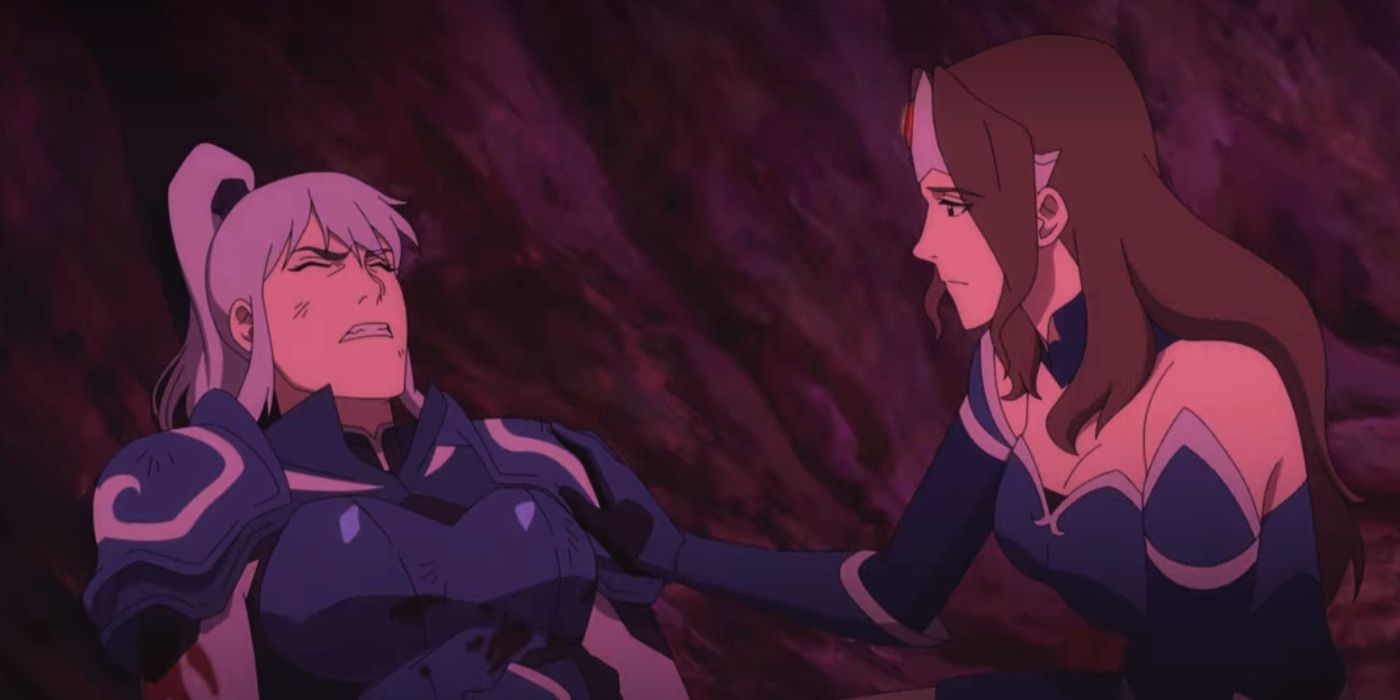
Apart from Davion, Mirana struggles acutely with her sense of identity throughout Book 1 of DOTA: Dragon's Blood, as she chooses to self-exile in an attempt to return the luminous lotuses stolen from Goddess Selemene. This is reflected in her proclamation that she is a “Princess of Nothing”, a non-entity when not favored by one of the goddesses of the moon. Mirana’s faith in the goddess is unshakeable even after Invoker reveals her true intentions, along with the inherent cruelty of her actions against the elves who worship the goddess Mene. On the other hand, devotion is central to Luna’s character, as her journey as a disciple of Selemene is an integral aspect in her quest for redemption. After passing the trials in the Nightsilver Woods, Luna chose to renounce her bloody past and remake herself as a fierce arbiter of the goddesses’ wishes. However, Luna’s renouncement of violence is rendered moot when Selemene asks her to wipe out anyone who dares oppose her, triggering a chain of violence yet again.
Despite their innate differences, Mirana and Luna decide to band together during Terrorblade’s ambush and lead their remaining forces to safety whilst battling valiantly. There’s also the question of Fymryn, who is on her own personal quest for retribution with the aim to fulfill Mene’s long-forgotten prophecy. Audiences are allowed a peek into Fymryn’s many abilities, setting up the premise for her own arc in Season 2, which might potentially harken the return of Mene while demystifying the reason behind her absence. As Invoker assigns Fymryn with the task to bring Davion back to him, will she be willing to venture into the heavily-guarded Dragon Hold and complete her mission? Meanwhile, Mirana and Luna are stranded mid-battle, with no possible aid from the goddess, as she is defeated by Terrorblade in a deadly confrontation.
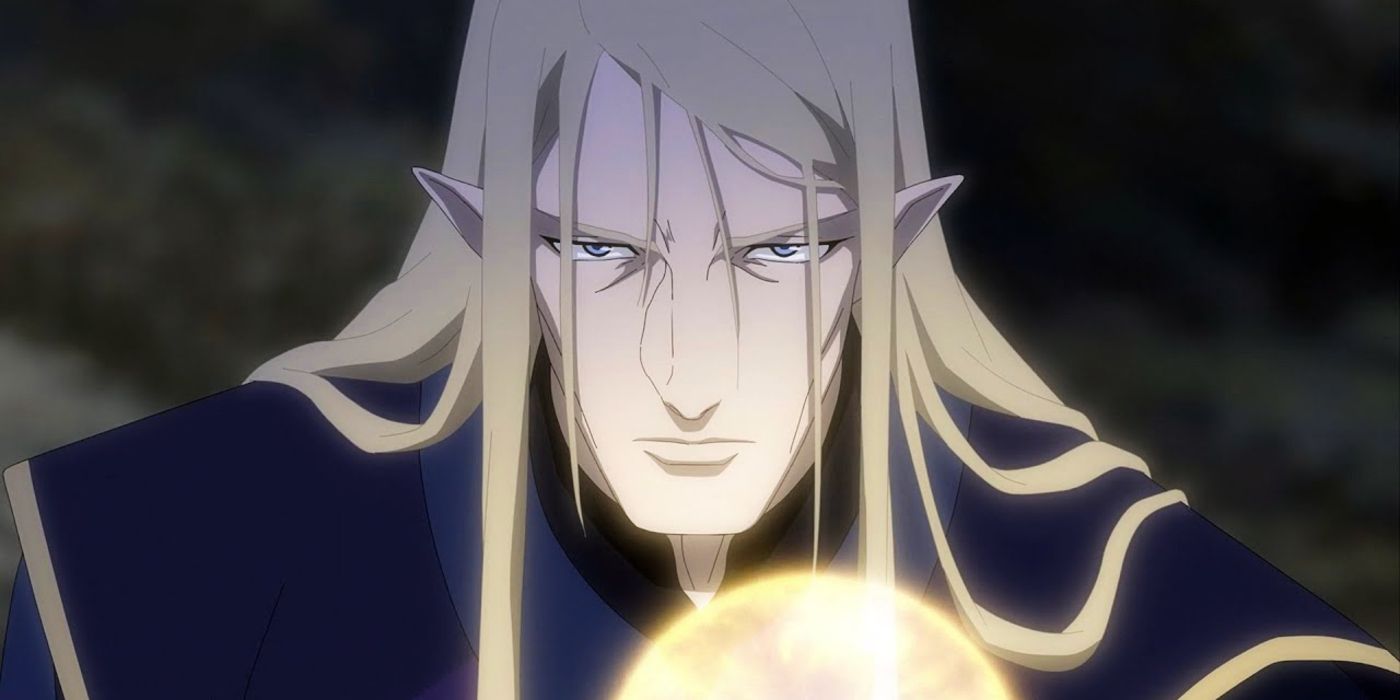
Towards the end of Episode 8, “A Game of Chess”, it is revealed that Invoker struck a bargain with Terrorblade, the terms being one soul in exchange for seven. As Terrorblade already possesses Uldorak’s soul, Invoker promises him seven Eldwurm souls in exchange for Selemene, his former lover. While the in-game lore positions Invoker as a formidable mage with vast intellect and prodigious memory, DOTA: Dragon's Blood imbues great depth and nuance to the character’s motivations, which do not seem to be solely rooted in the thirst for power. Rather, it is the indescribable anguish of a father, the inconsolable grief of losing one’s child that urges Invoker to concoct a master plan in conjunction with the demon hellion. Selemene’s lust for power not only rendered her blind to the true nature of love but also cost the life of an innocent child who simply wished to be close to her mother. Despite possessing the god-like ability to heal Filomena, Selemene chose not to, simply due to the fact that her daughter refused to worship her and instead, chose to simply love her as a maternal figure.
This utter betrayal emotionally devastates Invoker, who had created his once-magical realm for Filomena alone. Alone and driven to the edge with the desire for revenge, Invoker orchestrates key events that take place within the scope of the anime, such as the deft manipulation of Fymryn in order to make sure that the prophecy of Mene is somehow fulfilled. As per Terrorblade, it makes sense for a demon to usurp a god, especially one that engages in forceful conversions and mass genocide. With Selemene’s powers lost, the power dynamic has now shifted in Invoker’s favor, which is a poetic reversal of the helplessness he had felt when appealing to her for Filomena’s life. As Book 1 of DOTA: Dragon's Blood ends with the Invoker uttering the cruel words, “Do you love me?”, it remains to be seen what he plans to do with Selemene, and whether he wishes to do the unimaginable: bring Filomena back to life.
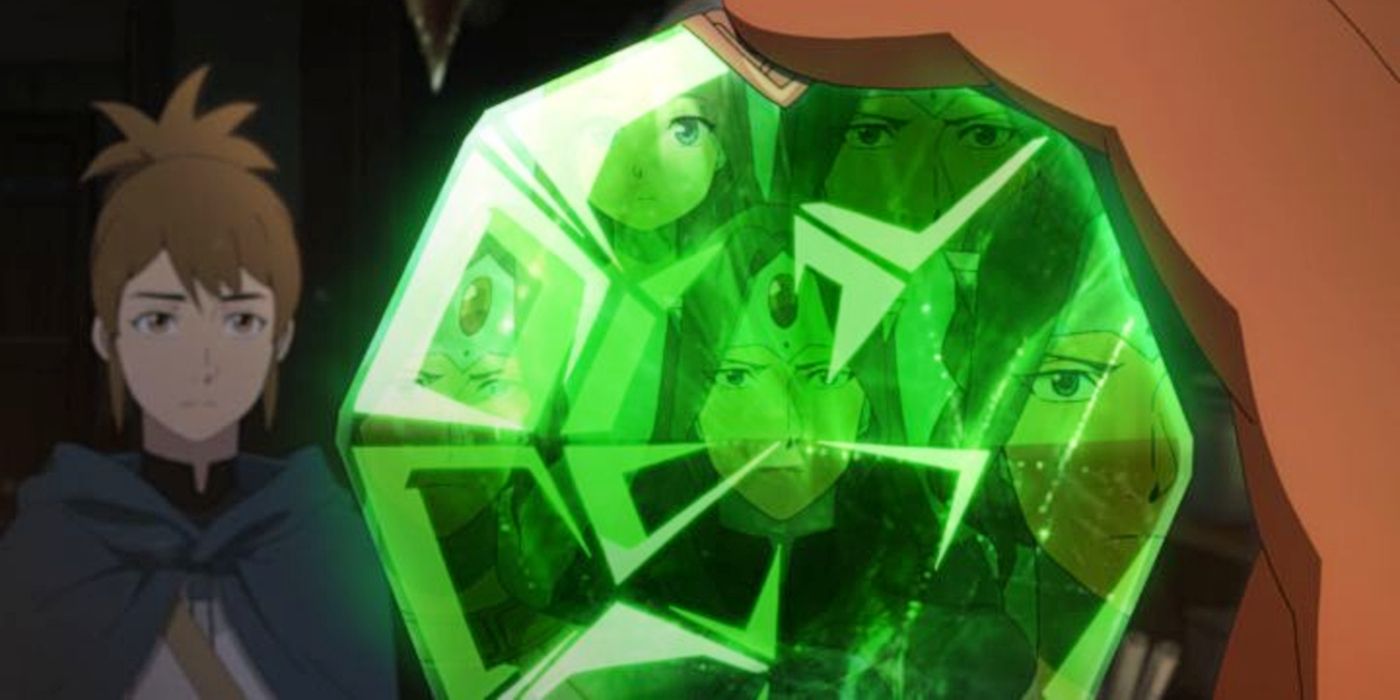
Despite tackling divergent storylines that merge and bleed into each other towards the end, the Netflix anime tv show is able to incorporate slivers of references to in-game items and lore. For instance, Bram is shown to teleport with the aid of Town Portal Scrolls, which is activated with the help of blood magick. In terms of characterization, The Shopkeeper emerges as an elusive figure, much like his iconic presence in the unveiling of DOTA 2 in its official 2011 trailer. Episode 2 features this enigmatic figure, who gives Mirana the Gem of True Sight, which allows Marci to find Invoker’s tower hidden in plain sight. Apart from this, a ton of actual in-game items are seen in the shop, such as healing salves, a Clarity, and a Dust of Appearance. It is also interesting to note that the red stone that Mirana witnesses inside the cave is a Direstone, which is a piece of the Dire Ancient. As the Direstone is purportedly known to possess the ability to invade minds and drive them to insanity, this interpretation is in line with the feral, writhing bodies Mirana sees inside the dreaded cave.
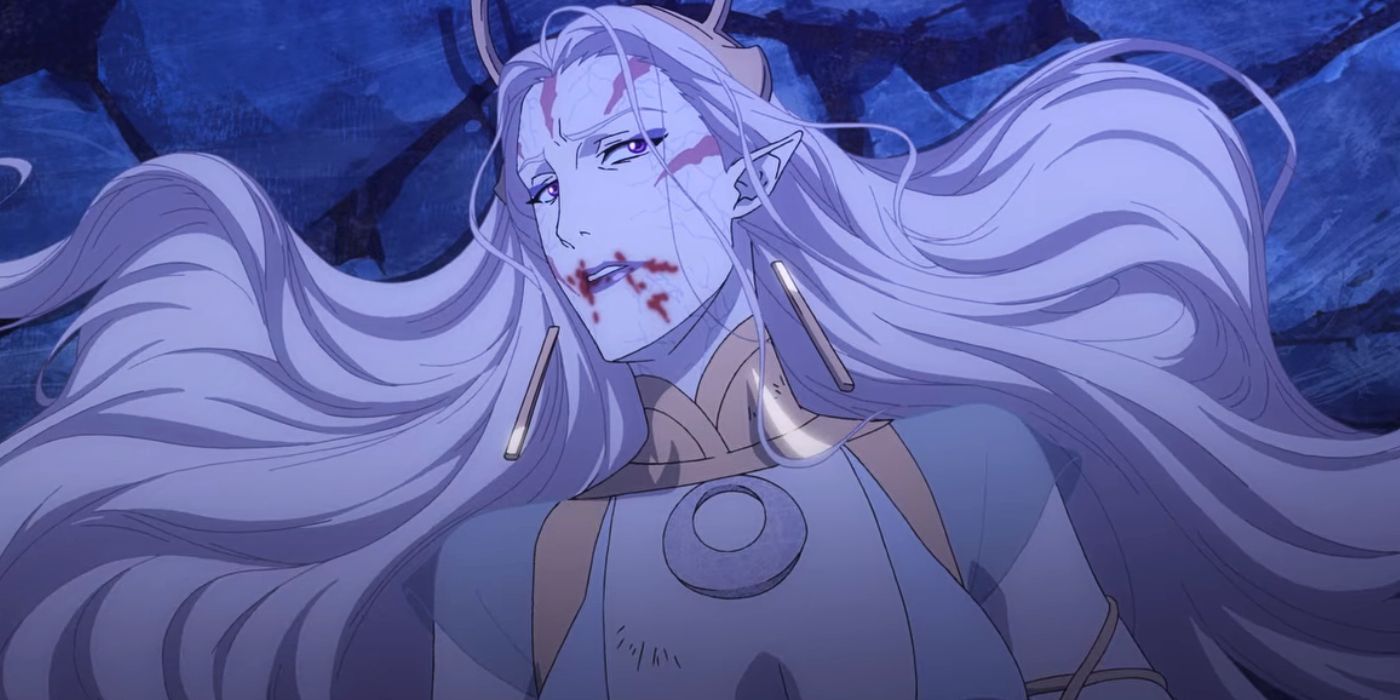
Book 1 of DOTA: Dragon’s Blood ends with the advent of a new power dynamic, which shatters the established order of Selemene, and puts an end to the atrocities of the Dark Moon Order. However, this marks the beginning of a more sinister world, with Terrorblade at the brink of unleashing a full-fledged war on the material plane. As it is hinted that Selemene usurped Mene’s power to assert her authority as the new moon goddess, will Mene return to reclaim her divinity? Meanwhile, the elves are not ready to negotiate peace, owing to the fact that countless of their kind were slaughtered by the Dark Moon Order. Faith, divinity, power, and personal motivations continue to contribute to clashing loyalties, which emerge as exercises in futility when faced against a hellish usurper like Terrorblade. Moreover, will Invoker succeed in handing over Slyrak’s soul as per his deal with Invoker, and can Davion survive the process? These questions linger amidst the aftermath of DOTA: Dragon’s Blood, which promises the inception of a new era of dread, albeit tinged with a sliver of hope.
from ScreenRant - Feed https://ift.tt/3flmUA8
No comments